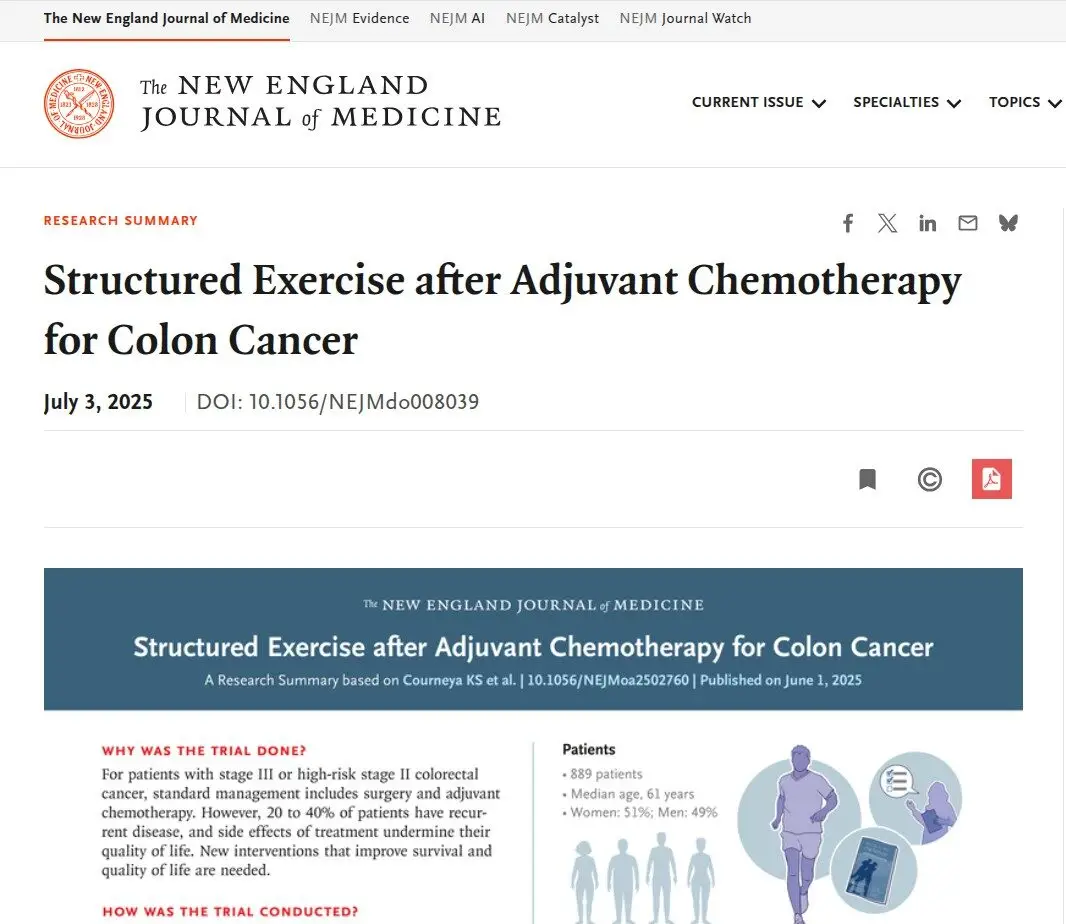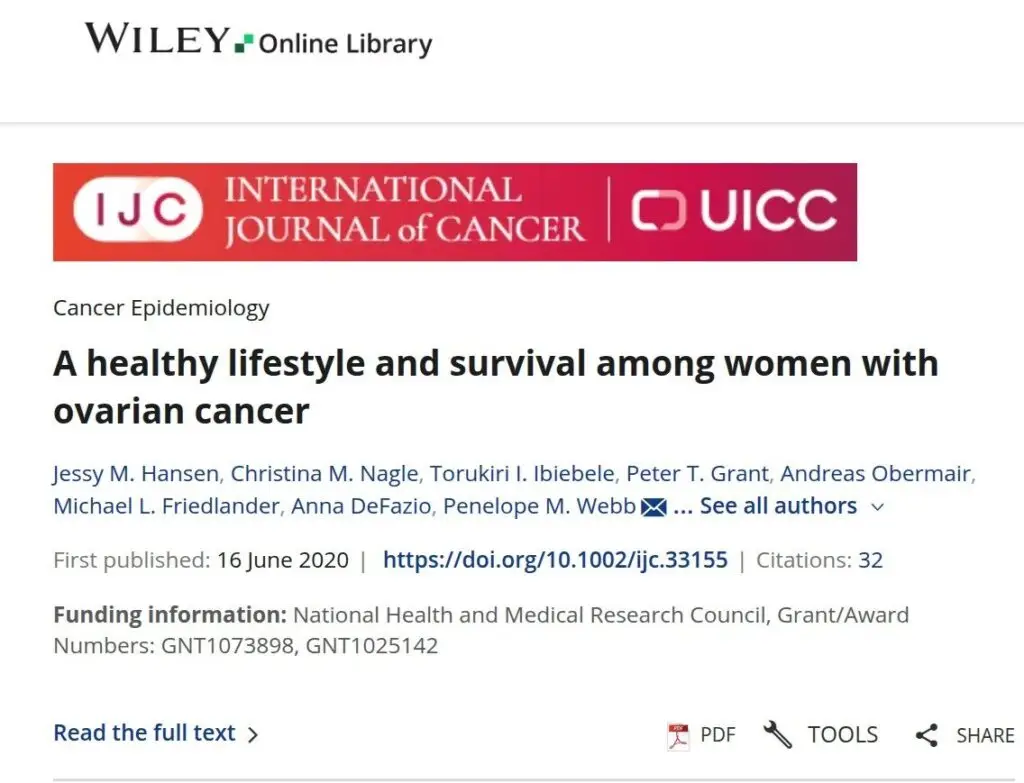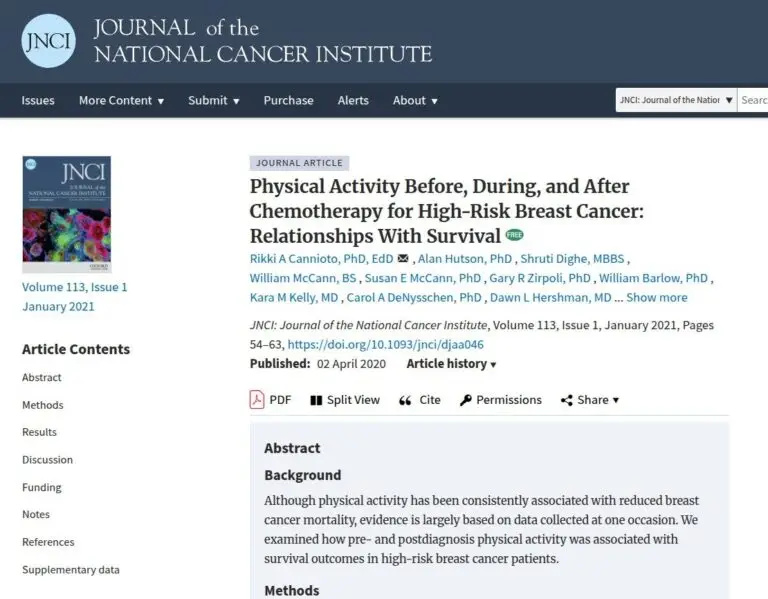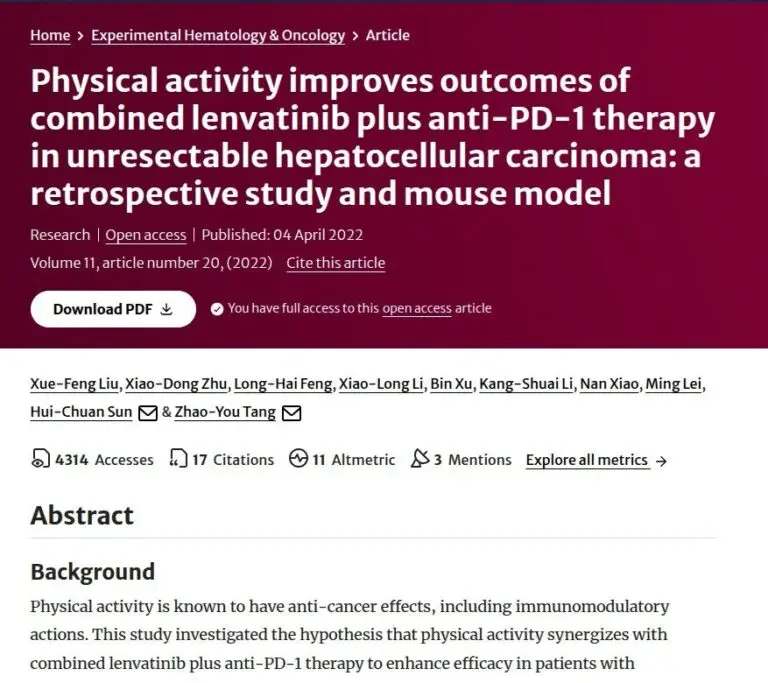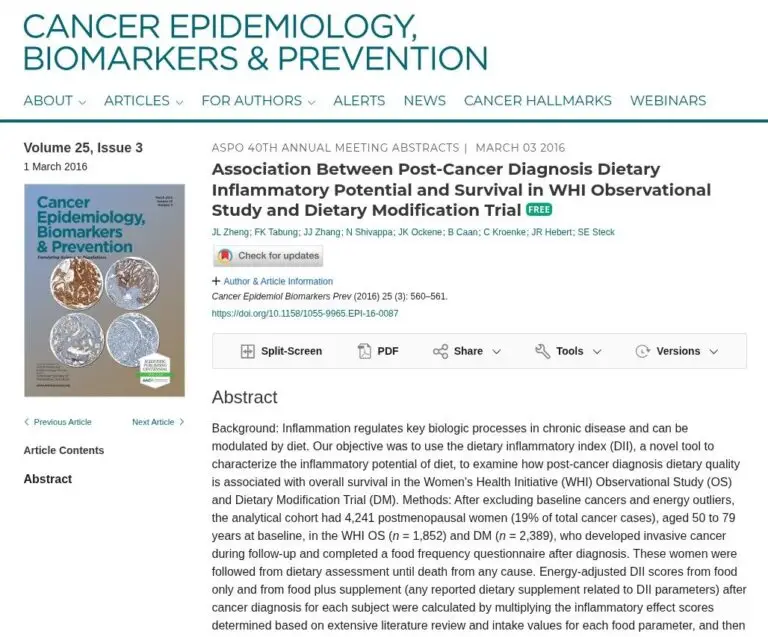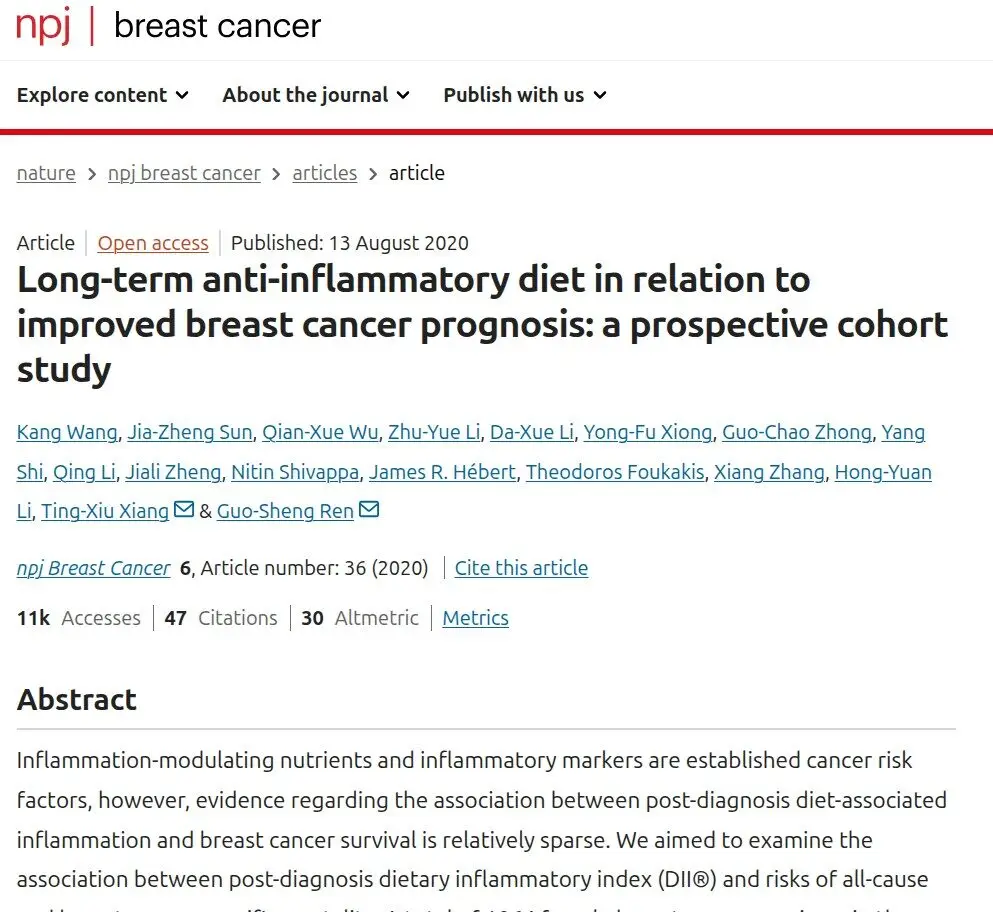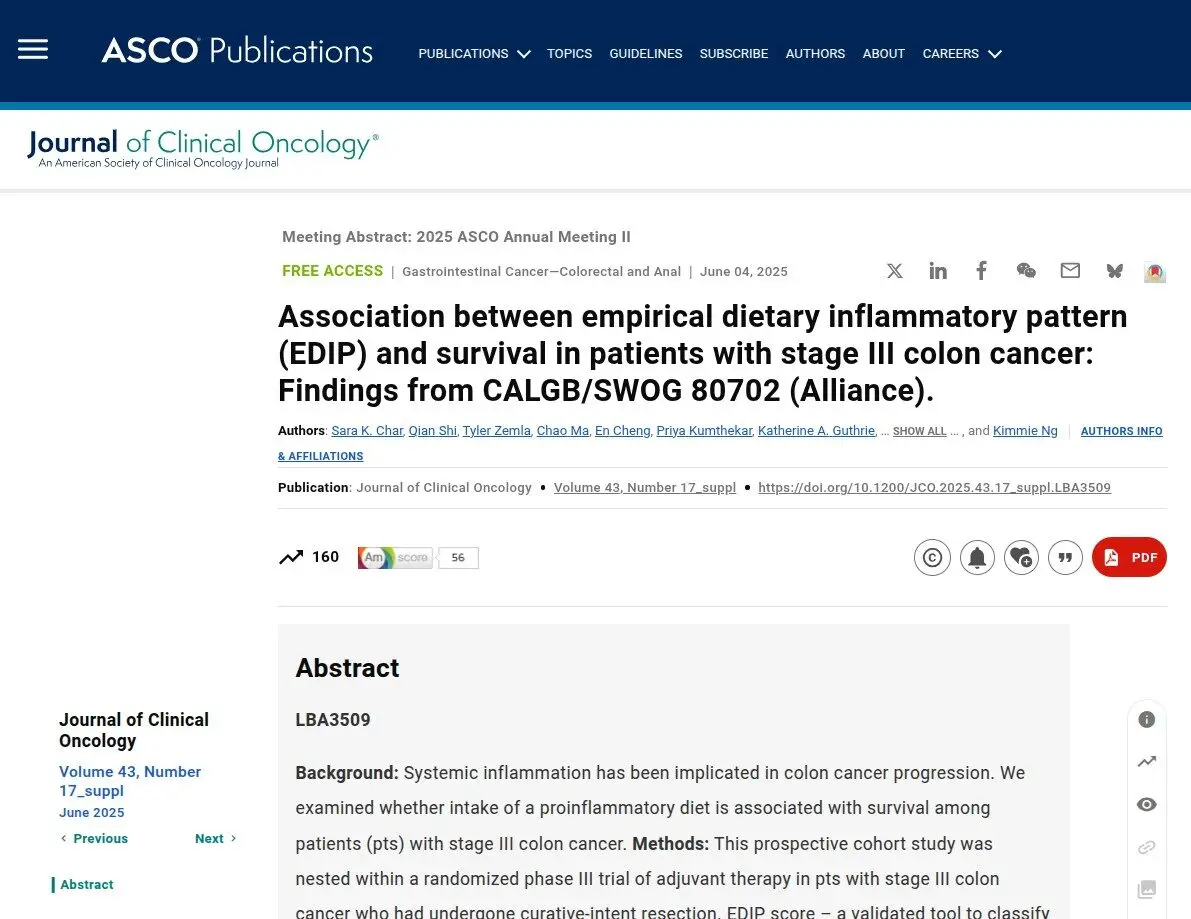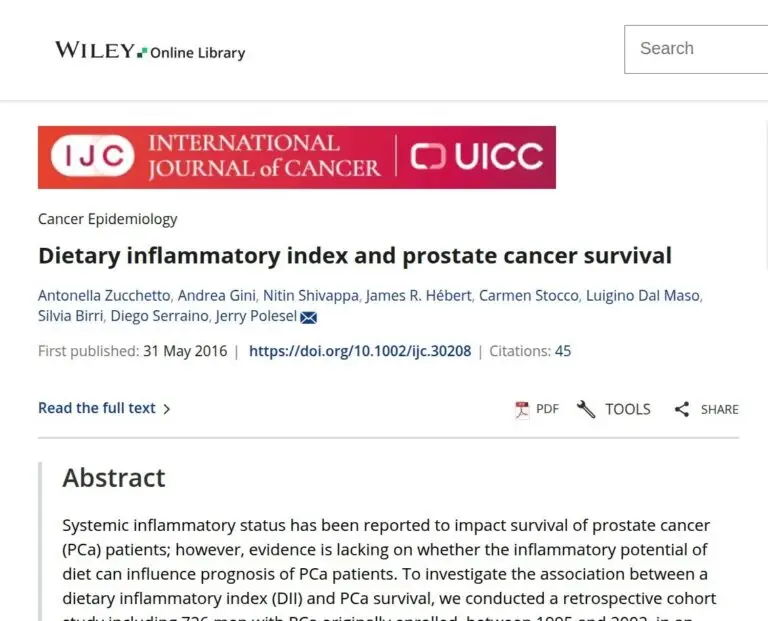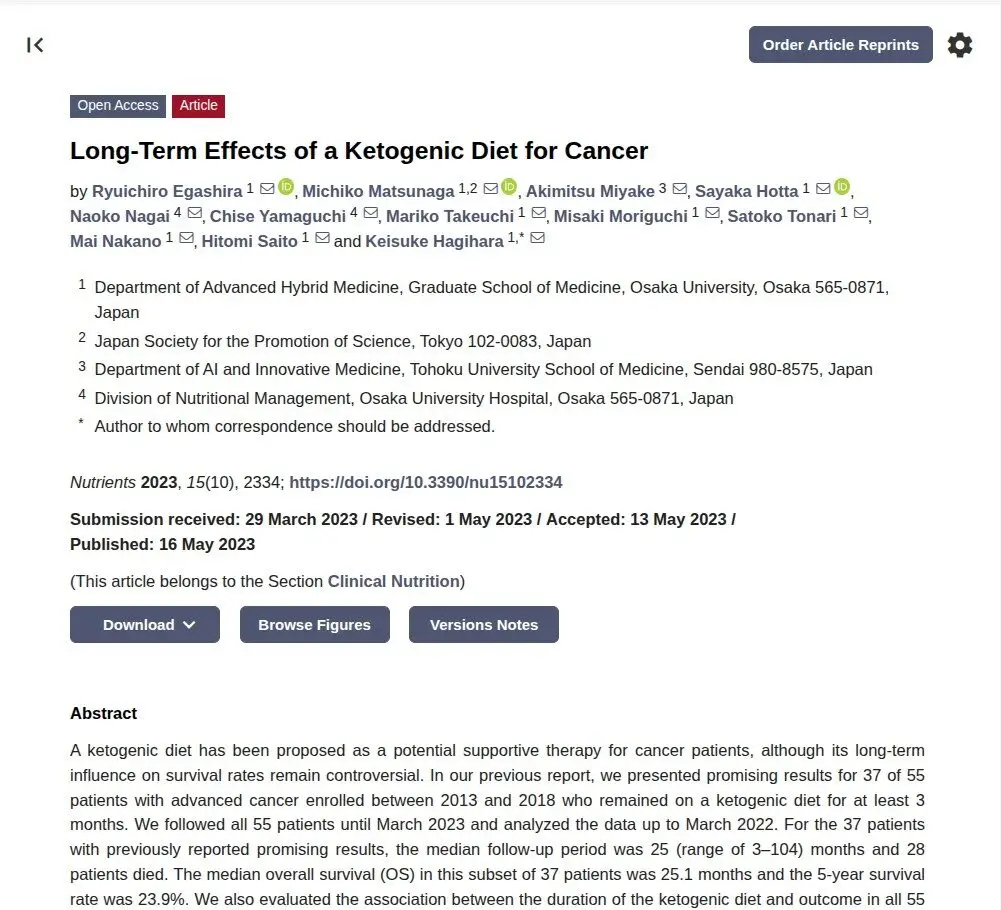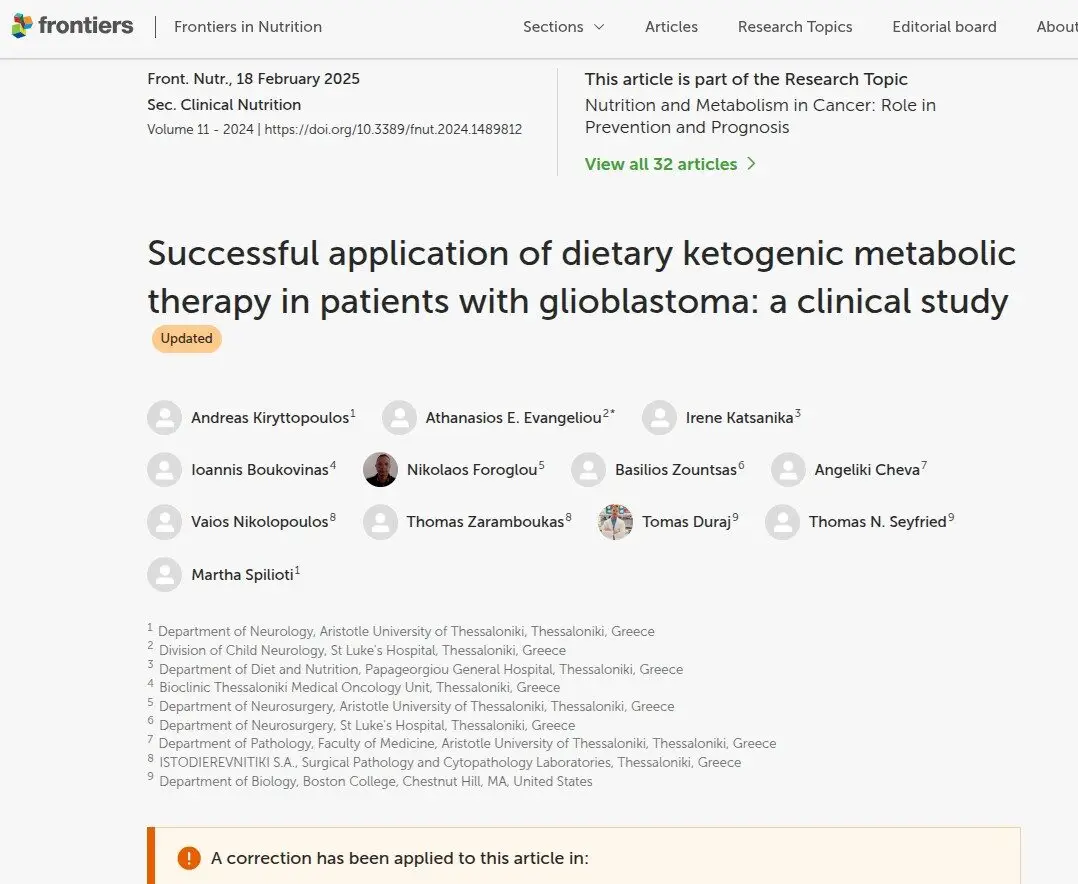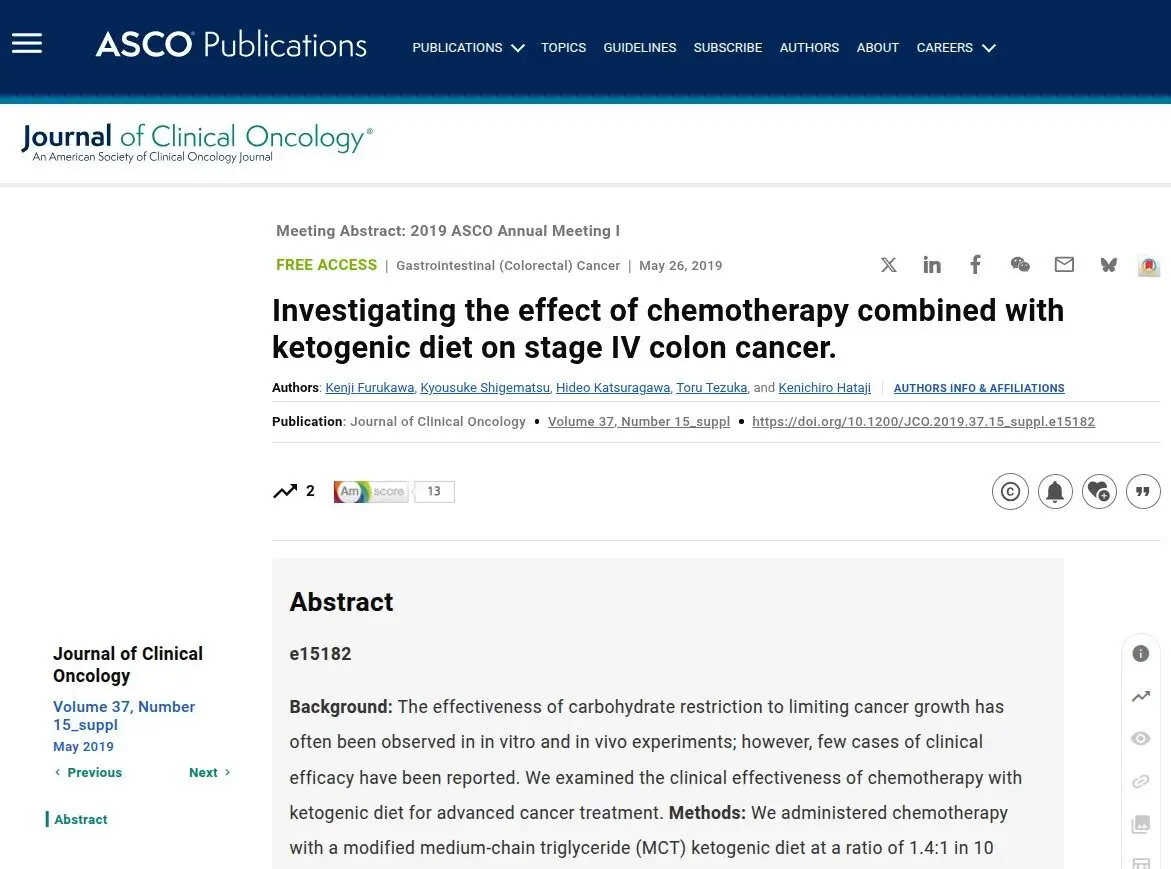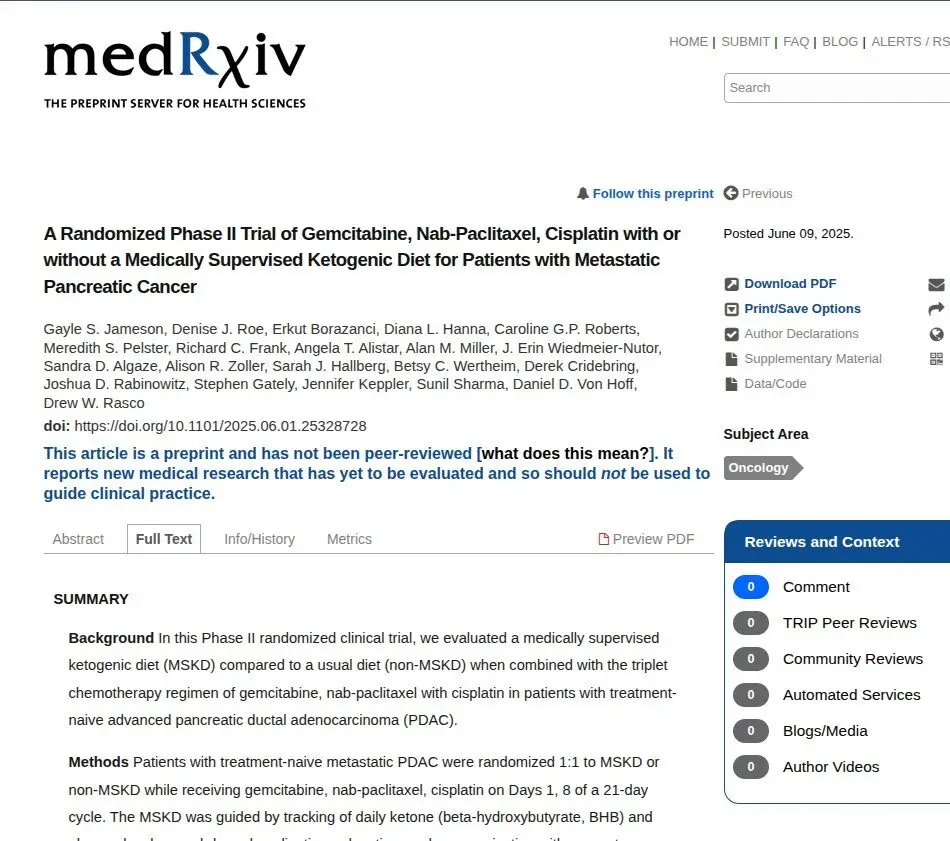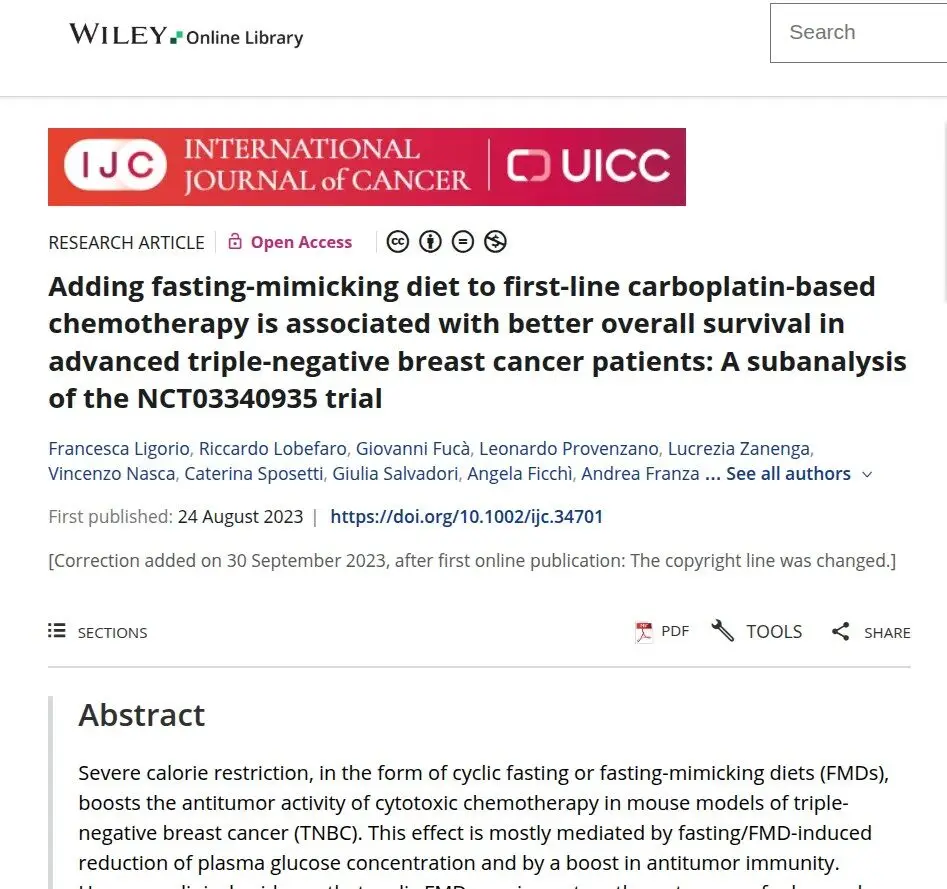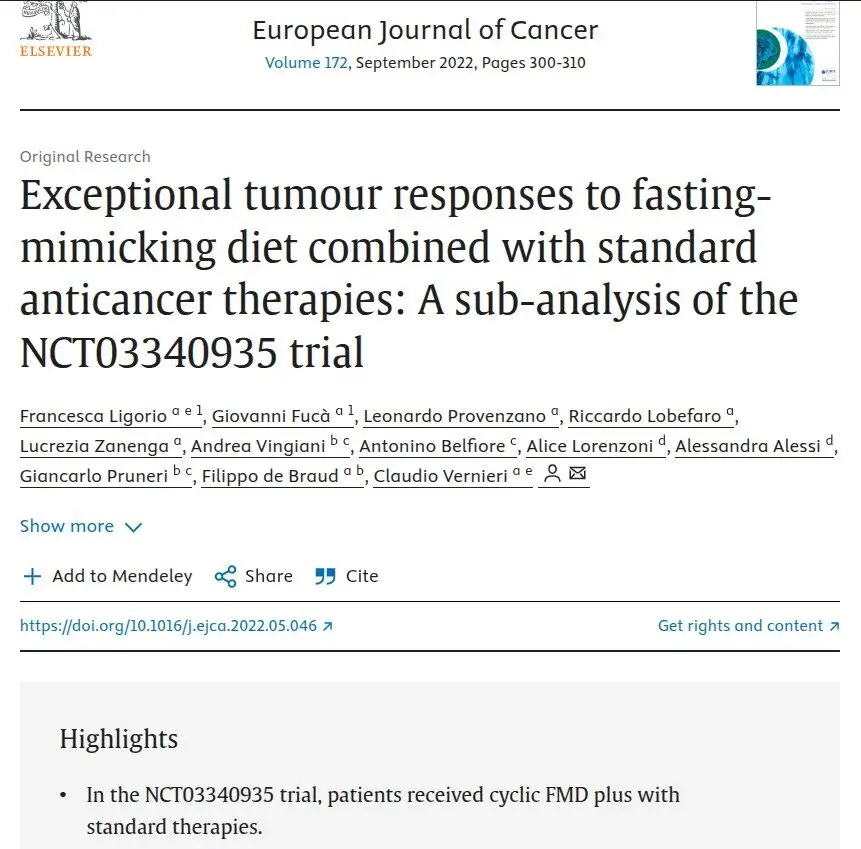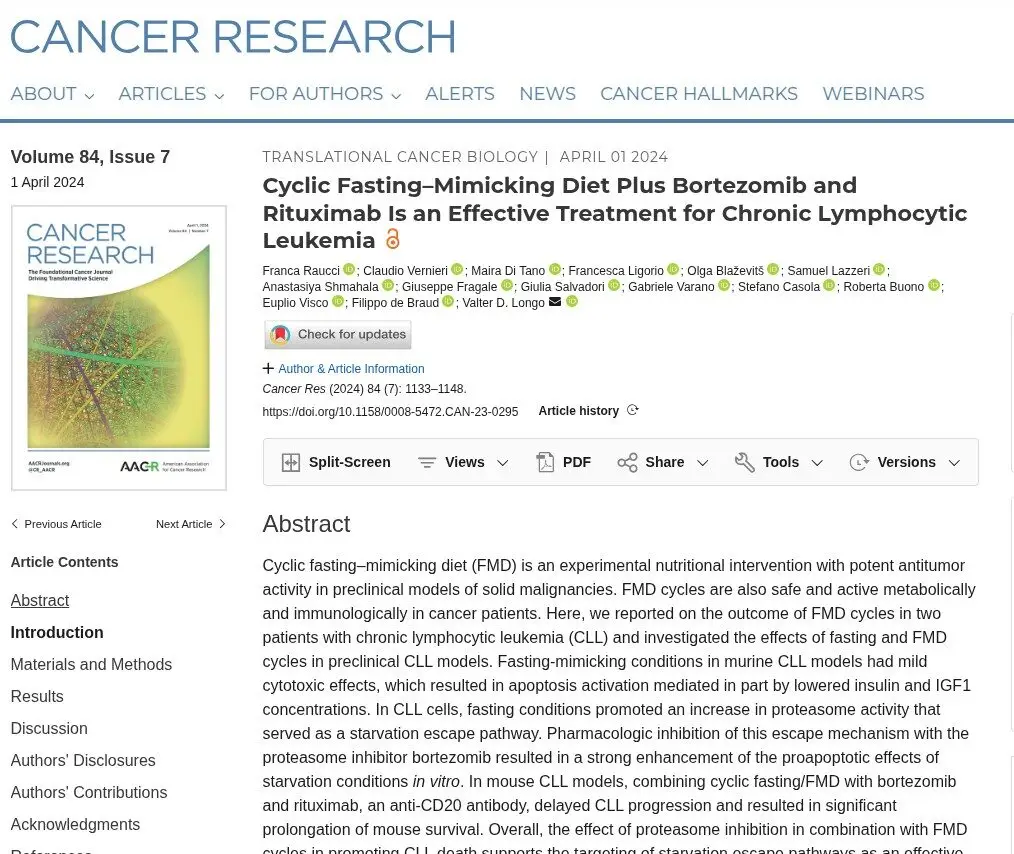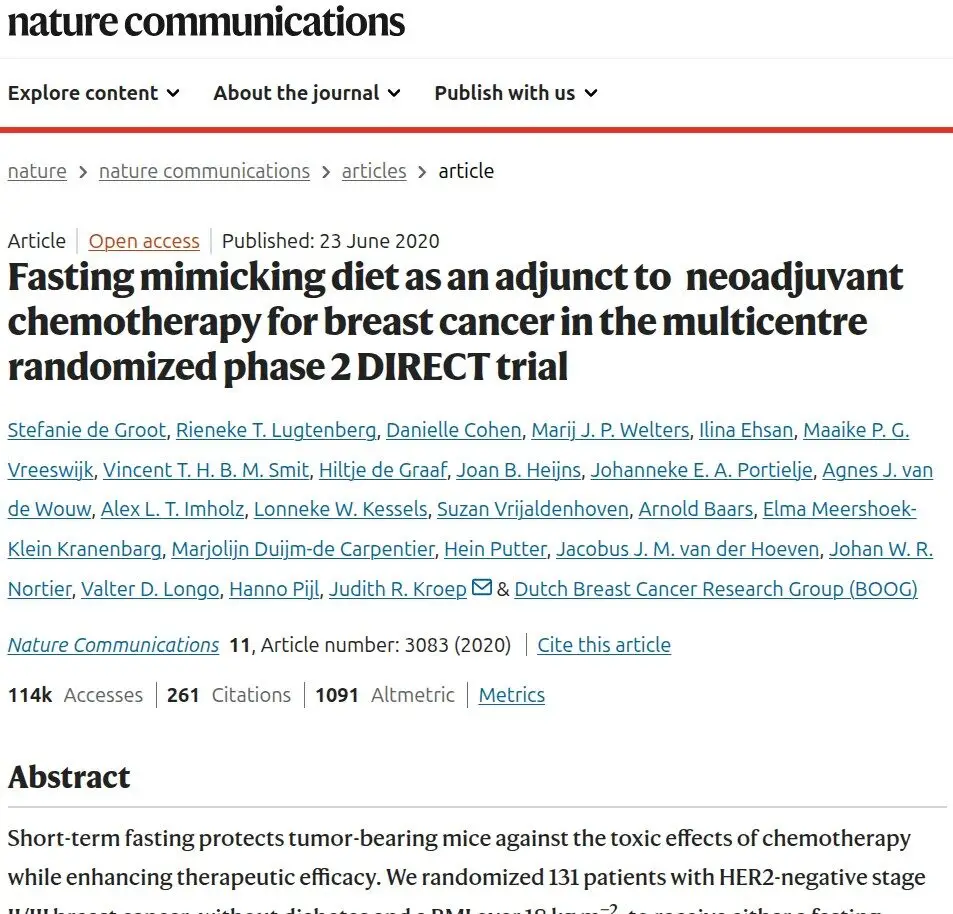REDUCED RISK
BETTER RESPONSE
LESS SIDE EFFECTS
MOVEMENT IS MEDICINE
Structured EXERCISE has recently made the headlines for positive and substantial impacts in cancer management
MICROBIOME IS KEY
ANTI INFLAMMATORY diets rich in vegetables and FIBER are becoming a mainstream accepted strategy
TARGETING OF DIETS
KETOGENIC or other specialized dietary regimes are emerging in SPECIFIC cancer types with promising indications
METABOLIC TRAINING
Eating patterns including INTERMITTENT FASTING or meal timing continue to gather evidence in research studies
The recent CHALLENGE trial in nearly 900 mainly stage III colorectal cancer patients treated with chemotherapy.
Prescribed exercise programs substantially reduce risks for recurrence
- 5 year disease free rates increased by 28%
- Overall 8 year risk reduction of 37% reported here
- This is better than adding extra drugs to the base chemotherapy regime
At a median follow-up of 7.9 years, disease-free survival was significantly longer in the exercise group than in the health-education group (hazard ratio for disease recurrence, new primary cancer, or death, 0.72) The 5-year disease-free survival was 80.3% in the exercise group and 73.9% in the health-education group (difference, 6.4 percentage points). Results support longer overall survival in the exercise group than in the health-education group (hazard ratio for death, 0.63)
Patient survey of lifestyle habits during treatment for ovarian cancers shows substantial benefits to exercise
And separately the crucial difference in being a non smoker is shown here
- Those with higher vs lowest physical activity reduced risk by 40%
- Overall healthy lifestyle habits show similar benefit
- Quitting smoking almost triples survival in this group of over 500 patients
the association was stronger for lifestyle after diagnosis, with women in the highest tertile having significantly better survival than women in the lowest tertile (HR 0.61). Current smoking, particularly postdiagnosis, was associated with higher mortality (HR 1.68; HR 2.82 for prediagnosis and postdiagnosis smoking,), but women who quit after diagnosis had survival outcomes similar to nonsmokers (HR 0.99). Higher physical activity after diagnosis was associated with better survival (HR 0.60) A healthy lifestyle after diagnosis, in particular not smoking and being physically active, may he...
Survey based data from 1340 cases in the DELCaP trial looking at relative levels of physical activity following breast cancer treatment at one and 2 years
Remarkably strong benefits are shown for both lower recurrence rates and lower overall risks
- Overall risk reductions increased with time to as much as 69% for the most active
- Disease recurrence rates are more than halved by relatively high levels of exercise
- The data shows increasing benefits with more frequent exercise
Meeting the minimum guidelines for physical activity both before diagnosis and after treatment appears to be associated with statistically significantly reduced hazards of recurrence and mortality among breast cancer patients. When considering activity from all time points, including during treatment, lower volumes of regular activity were associated with similar overall survival advantages as meeting and exceeding the guidelines.
Recent trial looking a patient records in immunotherapy for liver cancer alongside a lab study confirming the mechanism. Remarkably increased treatment responses and outcomes with exercise during therapy
John Hopkins is running a trial with immunotherapy for advanced kidney cancer
- Over 4X response rates to immunotherapy
- Around 80% overall risk reductions for disease progression
- Mouse model showed how exercise reduces treatment resistance and evasion
Regular physical activity was associated with improved outcomes in unresectable HCC receiving combined lenvatinib plus anti-PD-1 therapy. Physical activity may improve therapeutic efficacy by reprograming the tumor microenvironment from an immunosuppressive to immunostimulatory phenotype..Regular physical activity was independently associated with OS, PFS and ORR. The mouse model showed that physical activity significantly suppressed tumor growth and prolonged survival of tumor-bearing mice. Furthermore, physical activity inhibited Treg cell infiltration and immune checkpoint expression
ANTI-INFLAMMATORY diet
Analysis of patient records for dietary habits frequently shows advantages in anti-inflammatory foods vs pro-inflammatory.
This is generally related to more vegetarian style regimes. Of course specific functional foods and supplements can help here
Good evidence of benefits in many cancers including breast, colon and late stage prostate cancer management
Effects are further increased when combined with an active lifestyle and regular exercise
Dietary surveys used here with over four thousand women evaluating effects of anti- inflammatory diets
A measurable benefit is reported due to less inflammatory diet, and more substantial when including supplements
- An overall risk reduction of around 40% by following less inflammatory diet and using supplements
- Approximately half of the benefit is diet related, the rest supplements
- Use the Supplements and Food Library to identify your own preferred ingredients
After a median 11.2 years of follow-up, 1,470 deaths occurred. After adjustment for key covariates, women who consumed a more pro-inflammatory diet (in higher quartiles of DII score from food only) after a cancer diagnosis had a significantly higher risk of death from any cause compared to women consuming a more anti- inflammatory diet, In analyses using DII score from both diet and supplements, a pro-inflammatory DII score was associated with even higher risk of all-cause mortality, Conclusions: Consuming a more pro-inflammatory diet after cancer diagnosis was associated with increased ris...
Especially over the longer term, there are large reductions here in breast cancer progression rate irrespective of subtype
In over one thousand dietary surveys both cancer and all cause risks are substantially lowered
- The lowest vs highest inflammatory diets produce over 40% reduced progression risk
- Around a third lower all cause mortality risk is also reported
- Findings here for all subtypes of breast cancer
Our findings support that anti-inflammatory potential of a post-diagnosis diet may be a means for reducing risk of breast cancer and all-causes death among breast cancer survivors. ...Overall, in this longitudinal analysis of post-menopausal breast cancer patients from the PLCO trial, a more anti-inflammatory diet after breast cancer diagnosis was associated with lower risks of both all-cause mortality and breast cancer-specific mortality. These risks varied by follow-up period, protective effects of consuming anti-inflammatory diet on prognosis of breast cancer became stronger when cases a...
A 2025 phase III clinical trial in over 1600 colorectal cancer patients
Here there are large risk reductions in patients on the lower inflammatory diets, based on surveys. And these increase with exercise.
- The lowest vs highest inflammatory diets produce 47% reduced progression risk
- When combined with excercise a larger 63% reduced risk for progression
- A clear example of overall lifestyle impacts on outcome
Our findings suggest that greater intake of a proinflammatory dietary pattern is associated with worse OS in pts with stage III colon cancer. Regular physical activity may attenuate the association, and further investigation of diet and physical activity intervention is warranted...Diet and physical activity jointly influenced OS. Those with lower EDIP scores (quintiles 1-4, 80% of the study population) and higher physical activity (≥9 MET-h/wk) had the best OS compared with pts in the highest EDIP quintile (20% of the study population) and lower physical activity
Long term dietary habits in prostate cancer show dramatic benefits of anti-inflammatory diet regimes in the advanced stages
All cause risks are also reduced in this group, with measurable but fairly small differences for earlier stages
- Almost a two thirds risk reduction for late stage progression in those with low inflammatory diets
- Measurable but small effects in early stages
- Around a quarter lowered all cause mortality risk over 10 years
These study findings suggest that diet, through its inflammatory potential, may play a role in survival after PCa diagnosis among men with more aggressive, poor-prognosis cancers. Moreover, the association was more evident for PCa-specific mortality rather than for nonPCa-specific one...Increasing evidence supports a role of diet in regulating the inflammatory milieu.8 Specific foods and nutrients have been associated with increased levels of inflammato...
KETOGENIC diet
Highlighted here are a handful of recent trials with premlinary findings with some particulary strong impacts from ketogenic diets
As well as reduced progression, the underlying associations to lower blood sugar levels and systemic inflammation are reported
Multiple trials are ongoing particularly in glioblastoma, lung, colorectal, breast and kidney cancers especially with immunotherapy
Some include the use of keto “supplements” such as MCT oils and beta-hydroxybutarate or BHB, indicating they may be important
37 patients with advanced cancers including lung, colorectal breast ad pancreas of which a quarter seem to get notable benefits from a keto diet
Clearly shows blood sugar and inflammation strongly drive progression risk
- 6 of 37 patients in longer term remission including two lung and two colorectal cancer patients
- These cases have ongoing remission of 5 to 8 years
- Large reductions in progression risk are linked to low blood glucose and inflammation (CRP)
Total ketone bodies increased significantly, and both fasting blood sugar and insulin levels were suppressed significantly for three months after completion of the study. Five patients showed a partial response at three months. Three and seven patients showed complete and partial responses, respectively at one year. Median survival was 32.2 (maximum: 80.1) months, and the three-year survival rate was 44.5%. After three months on the ketogenic diet, the serum Alb, BS, and CRP (ABC) score could be used to stratify the patients into groups with significantly different survival rates.
Recently published study over several years in a small group of glioblastoma patients.
A third of patients could continue the keto diet and saw remarkably improved outcomes.
- Six of 18 were able to sustain the diet and all achieved markedly reduced progresssion risk
- Essentially, all achieved the goal of 3 years response, and 3 have continued towards or even beyond 4 years
- Withdrawal rate from the diet was high at two thirds
Patients who followed a well-designed ketogenic diet had longer survival compared to patients who did not follow it. Although the number of patients is small, the results are encouraging and motivate us to plan studies with a larger number of patients... Furthermore, when the ketogenic diet was applied alongside chemotherapy and corticosteroids, no dysfunction in glucose metabolism was observed...cancer cells exhibit altered and increased glucose uptake and increased glycolysis... It is also well known that both chemotherapy and steroids increase glycolysis
This study in 10 advanced colorectal cancer patients looked at how keto diets may improve results from chemotherapy.
More research is needed on identifying responders. On factor here seems to be introducing the diet up to 6 months ahead of treatment
- “Responders” to keto diet with chemo saw around 40% reduced progression risk
- This group started keto further ahead of treatment.
- “Non responders” saw worse outcomes than chemo only
The ketogenic diet-chemotherapy combination response group tended to have a longer OS than the chemotherapy-only group. In addition, in the ketogenic diet-chemotherapy combination response group, introduction time was earlier than the ketogenic diet-chemotherapy combination non-response group for 5.7 months, with high serum ketone body levels and low blood sugar levels. .. Chemotherapy with ketogenic diet resulted in higher response and disease control rates than chemotherapy alone. Additionally, the conversion surgery rate was high and an improved OS could be expected
New research with half of a group of 32 advanced pancreatic cancer patients use a keto diet, and 15/16 achieve ketosis even without any calorie restriction
Substantial benefits are reported including in the progression rates and quality of life metrics
- Reduced overall progression risks of over 40%
- Almost doubled progression free survival periods
- High diet compliance as calories are not restricted here
A medically supervised ketogenic diet is feasible in patients with treatment-naïve metastatic pancreatic adenocarcinoma, and when combined with gemcitabine, nab-paclitaxel, and cisplatin, demonstrates significant improvements in progression-free and overall survival, without added toxicity or detriment to quality of life.. It is critical to note that ketogenic diets examined in the literature vary.... The MSKD in this study allows eating to satiety within the prescribed macronutrient ratios, with the aim of balancing adherence with efficacy
FASTING regimes
Research in multiple cancer types used up to 8 cycles with five days at very low calorie ranges.
You can’t “starve” cancer and these regimes require careful supervision
The clearest case so far is for improving treatment response in triple negative breast cancer
The actions proposed are related to boosting immune system activity as well as lowering glucose
Sub group analysis from a larger multi cancer trial highlights TNBC patients as benefitting from fasting like diets before treatment.
The substantially reduced overall progression risk is suggested to be due to enhanced immune system activity in TNBC patients
- In 14 patients there is a reported 60% reduced risk of progression
- Effects are proposed to be longer term increased immune system activity
- A subset of a 101 patient trial where a few patients in other cancers saw long term remissions
Despite the OS benefit observed in patients undergoing chemotherapy plus FMD, we did not observe PFS differences between these clinical cohorts. The discrepancy between OS and PFS findings can be explained by several factors. First, the FMD might not improve tumor response to chemotherapy, but it could favor long-term tumor growth control by boosting antitumor immune responses. This interpretation is supported by previously published preclinical studies, which showed that fasting/FMD-induced boost in antitumor immunity is crucial to mediate its antitumor effects, and by our clinical finding...
Another sub group analysis from the same trial describes five unexpectedly robust responses to the calorie restriction cycling
More evidence is needed on how to target these fasting strategies
- Five late stage patients got unexpected responses when adding calorie restriction cycles
- As well as TNBC, also 3 other cancer types reported
- Between 2 and 4 years of sustained therapy response vs a few months expected
Of the 101 patients enrolled in the NCT03340935 trial, we identified five patients with advanced, poor prognosis solid neoplasms (n = 1: extensive stage small cell lung cancer; n = 1: metastatic pancreatic adenocarcinoma; n = 1: metastatic colorectal cancer; n = 2: metastatic triple-negative breast cancer), who achieved complete and long-lasting tumour responses when treated with a combination of cyclic FMD and standard systemic treatments in the context of the NCT03340935 trial
Very detailed study of 2 chronic lymphocytic leukemia patients again in the same trial, with fascinating results
The fasting mimicking pattern is reported to actively slow the growth rate of cancerous lymphocytes
- The eight restricted calorie cycles of five days delay the need for oncology drugs
- Two patients manage their progression in the range 5 to 6 years
- Extensive work in mouse models shows how FMD would support later targeted drug regimes
In conclusion, cyclic fasting/FMD, which is safe in mouse CLL models and in CLL patients, cooperates with BTZ-RTX to slow down CLL progression and to prolong animal survival by activating apoptosis in CLL cells. Clinical trials with appropriate statistic design in specific CLL patient cohorts are needed to test if cyclic FMD can delay disease progression when used alone in patients with low-risk CLL, and if it can synergize with standard therapies in patients with aggressive disease not responding to standard therapies. Our findings point to FMD plus BTZ-RTZ as a new therapeutic approach th...
A subset of these HER- breast cancer patients were able to complete the diet and had much higher likelihood of getting the strongest responses
Many patients were unable to adhere to the calorie restricted diets
- Patients able to complete the trial saw 4X the rate of full responses to the oncology
- Side effects related to immune system were reduced by the diet
- Only a fifth of patients could manage all 4 fasting periods
Here we show that there was no difference in toxicity between both groups, despite the fact that dexamethasone was omitted in the FMD group. A radiologically complete or partial response occurs more often in patients using the FMD (OR 3.1). Moreover, per-protocol analysis reveals that the Miller&Payne 4/5 pathological response, indicating 90–100% tumor-cell loss, is more likely to occur in patients using the FMD (OR 4.1). Also, the FMD significantly curtails chemotherapy-induced DNA damage in T-lymphocytes. These positive findings encourage further exploration of the benefits of fasti...
Help grow the evidence. Login for online forms or try Feedback and Ideas below.

